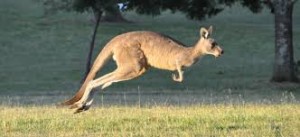Sure, certain types of ex ercise are associated with longer lives, but now comes another factor, one that seems to work in concert with exercise: genes. When researchers at the University of Buffal0 studied the genes in the neurotransmitter dopamine to determine their impact on lifespan and behavior in mice, yes mice, not humans, they found that the dopamine D2 receptor gene (D2R) significantly influences lifespan, body weight and locomotor activity. But, according to the U of Buffalo news release, there’s a catch. The receptor gene only works its magic when combined with an enriched environment that includes social interaction, sensory and cognitive stimulation and, most critically, exercise. And now the numbers: the researchers found that mice in the enriched environment lived anywhere from 16 to 22 percent longer than those in a deprived environment, depending on the level of D2R expression.
ercise are associated with longer lives, but now comes another factor, one that seems to work in concert with exercise: genes. When researchers at the University of Buffal0 studied the genes in the neurotransmitter dopamine to determine their impact on lifespan and behavior in mice, yes mice, not humans, they found that the dopamine D2 receptor gene (D2R) significantly influences lifespan, body weight and locomotor activity. But, according to the U of Buffalo news release, there’s a catch. The receptor gene only works its magic when combined with an enriched environment that includes social interaction, sensory and cognitive stimulation and, most critically, exercise. And now the numbers: the researchers found that mice in the enriched environment lived anywhere from 16 to 22 percent longer than those in a deprived environment, depending on the level of D2R expression.
